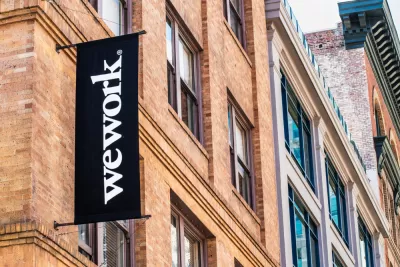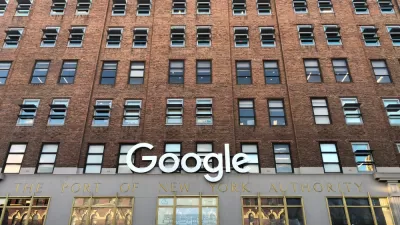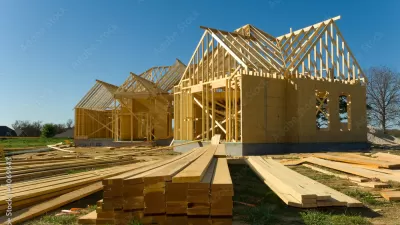WeWork isn’t dead yet, hoping to ride post-pandemic interest in flexible workspace to a comeback story for the ages. There are still cuts to be made, however.

WeWork continues to reduce its property inventory, announcing the latest in a string of closures since the beginning of the pandemic, but the news for the infamous office sharing company isn’t all bad.
“In a cost-cutting move, WeWork plans to close 40 U.S. underperforming shared office locations while seeking to capitalize on growing global demand for flexible workplaces in a bid to turn profitable,” according to an article by Andria Cheng for CoStar News. The company expects to contribute $140 million to its bottom line by closing the offices, according to Cheng.
“The closings add to over 240 full-lease exits and 480 lease amendments that WeWork had taken from the beginning of 2020 through the third quarter as the high-profile company focused on increasing profitability,” adds Cheng. On the other hand, the company is planning on opening 20 new locations globally this year, and the net impact of the recent closures only slightly lowers the company’s inventory compared to a year ago.
There are other signs that the company’s fortunes are headed in a more positive direction, according to the article, including a slowing rate of losses and increasing occupancy rates. Occupancy at the company’s consolidated locations are at 71 percent—up from 56 percent a year ago and the highest rate in two years.
While the media paid plenty of attention to the fall WeWork in 2019 (articles titled “the rise and fall of WeWork” as plentiful) and the company’s decline inspired a 2022 mini-series aired on Hulu, less coverage has been devoted to the pandemic’s surprisingly positive effects on the company. Here is sprinkling of media coverage tracking the narrative arc of the company in recent years.
- How to Explain the Rise and Fall of WeWork? (The New York Times; July 18, 2019)
- The Fall of WeWork: How a Startup Darling Came Unglued (Wall Street Journal; October 24, 2019)
- The Rise and Fall of WeWork (The New Yorker; November 6, 2019)
- Why WeWork went wrong (The Guardian, December 20, 2019)
- How WeWork Got Away With Spectacular Failure (New Republic; November 24, 2020)
- WeWork imploded in 2019. The pandemic brought it back to life. (NBC News; May 24, 2021)
More details on the current state of WeWork can be read at the CoStar article below.
FULL STORY: WeWork To Shut Down 40 US Underperforming Locations

Maui's Vacation Rental Debate Turns Ugly
Verbal attacks, misinformation campaigns and fistfights plague a high-stakes debate to convert thousands of vacation rentals into long-term housing.

Planetizen Federal Action Tracker
A weekly monitor of how Trump’s orders and actions are impacting planners and planning in America.

In Urban Planning, AI Prompting Could be the New Design Thinking
Creativity has long been key to great urban design. What if we see AI as our new creative partner?

King County Supportive Housing Program Offers Hope for Unhoused Residents
The county is taking a ‘Housing First’ approach that prioritizes getting people into housing, then offering wraparound supportive services.

Researchers Use AI to Get Clearer Picture of US Housing
Analysts are using artificial intelligence to supercharge their research by allowing them to comb through data faster. Though these AI tools can be error prone, they save time and housing researchers are optimistic about the future.

Making Shared Micromobility More Inclusive
Cities and shared mobility system operators can do more to include people with disabilities in planning and operations, per a new report.
Urban Design for Planners 1: Software Tools
This six-course series explores essential urban design concepts using open source software and equips planners with the tools they need to participate fully in the urban design process.
Planning for Universal Design
Learn the tools for implementing Universal Design in planning regulations.
planning NEXT
Appalachian Highlands Housing Partners
Mpact (founded as Rail~Volution)
City of Camden Redevelopment Agency
City of Astoria
City of Portland
City of Laramie





























